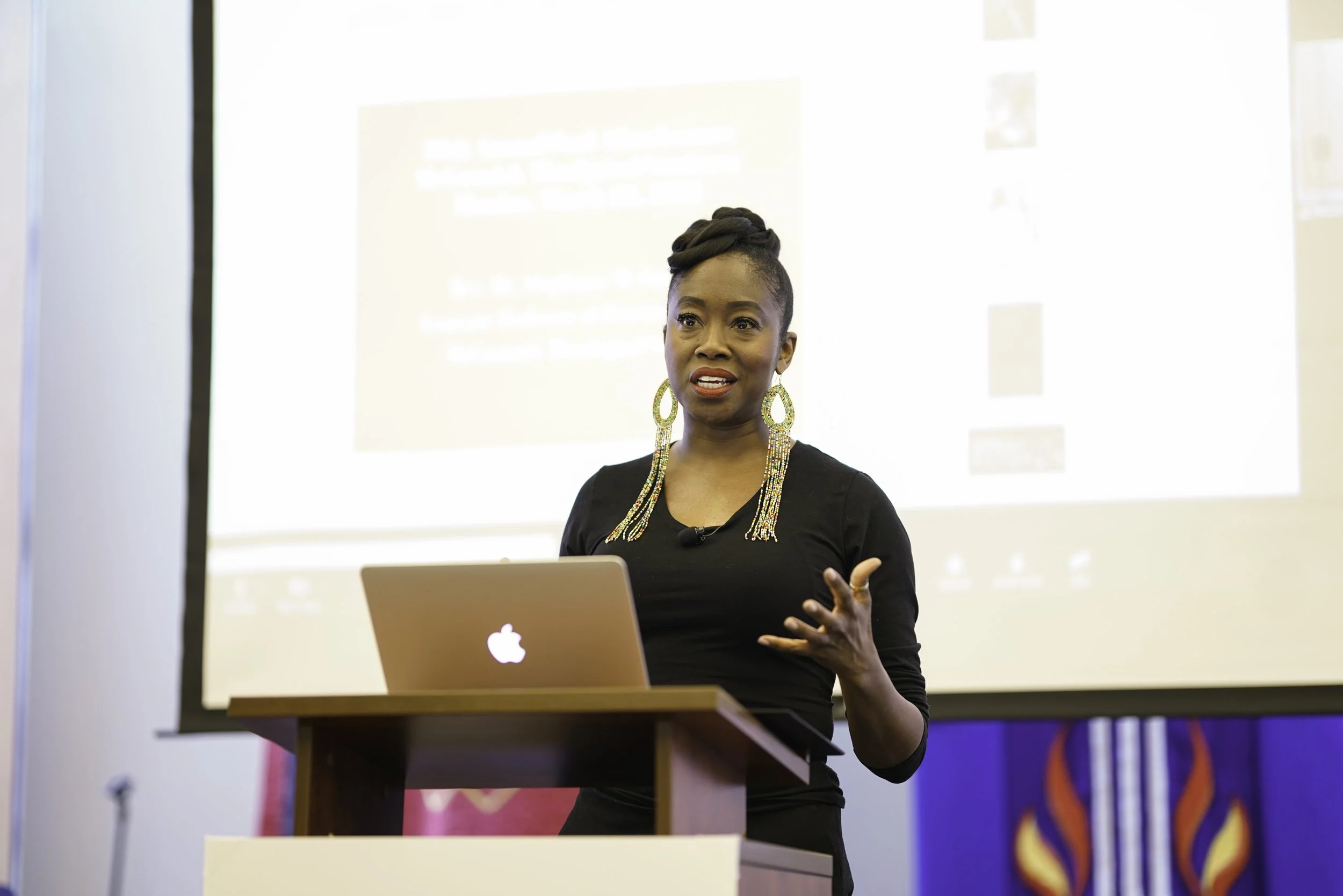Mental Health Awareness Month: Bringing Spiritual Compassion to Mental Health Needs
04-03-2023
One in five U.S. adults experience mental illness each year, reports the National Alliance on Mental Illness. Less than half of them receive treatment.
A biblical passage that offers insights about spiritual compassion for Dr. Stephanie M. Crumpton is the text that invites individuals to love the Lord their God with all their hearts, souls, and minds. “It introduces the idea that we can’t give what we don’t have or have never experienced,” says the assistant professor of Practical Theology and director of McCormick’s Trauma Healing Initiative, THI. “I can’t love my neighbor if I don’t know what it is like to love myself as I am loved by God. When I have a sense of compassion for myself, I can then extend that compassion beyond myself.”
THI’s inaugural course, Introduction to Trauma, the Bible, and Restorative Justice, will offer students, alumni and the public an opportunity to learn about extending compassionate care. During three weeks in July, Dr. Crumpton, Dr. Jina Kang, assistant professor Hebrew Bible/Old Testament, and K. Lynn Morton, restorative justice practitioner, will introduce participants to the knowledge and skills that can be used to offer trauma-informed and healing-centered practices in ministries and their communities.
“Spiritual compassion is about having our spirituality show up in the ways we engage with people, especially those who have experienced trauma,” says Dr. Crumpton, “This kind of compassion comes from first experiencing God’s love and compassion for ourselves.”
The Lily Foundation Pathways Initiative Phase 2 Grant supports THI’s focus on programs that address the collective trauma experienced within various communities and the ways trauma impacts the strength of religious institutions.
“We want to offer faith communities a better understanding of what mental health is, and its connection to our bodies, trauma, and the environment,” says Dr. Crumpton. “With education and practical skills, each of us can bolster our capacity for our own self-awareness around trauma, and our experience of God and faith. We want participants to consider restorative justice, not in the narrow way that many people view the term as having to do with the criminal justice system. We also want to think about restorative practices as skills that can help us help others be restored from the daily and generational harms that people have and continue to experience.”
Learn more and meet the instructors for Introduction to Trauma, the Bible, and Restorative Justice.
This summer, the Trauma Healing Initiative will offer its inaugural course, “Introduction to Trauma, the Bible, and Restorative Justice.” Open to the public as well as McCormick students and alumni, the course will introduce faith-based leaders and ministers to theoretical knowledge and practical skills for supporting individuals and families affected by trauma and other mental health conditions.


